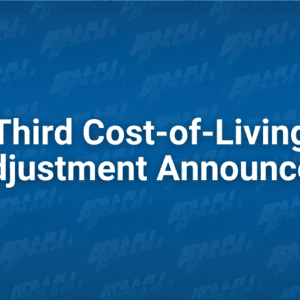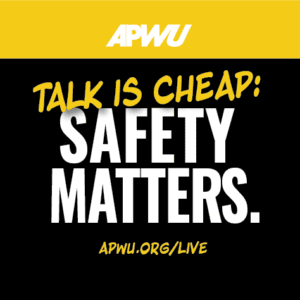January 23, 2020
Twenty Questions for 2020
(This article first appeared in the January/February 2020 issue of the American Postal Worker magazine)
1. What is postal banking?
It’s the provision of basic financial services through the USPS, ranging from check cashing to savings accounts, to offering small-dollar loans.
2. Is this a new idea?
No! The U.S. had a Postal Savings System from 1911-1967.
3. How did that work?
Really well! At its peak, the Postal Savings System held billions of dollars in assets and its government-backed deposits were credited with alleviating the sting of the Great Depression for many account holders.
4. What’s the Campaign for Postal Banking all about?
The campaign is a coalition of groups, including the APWU, who are leading the fight to expand financial services offered by the USPS.
5. Isn’t the post office losing money?
No! 92 percent of the Postal Service’s losses since 2007 can be attributed to the unjustifiable burden Congress placed on the USPS in 2006 to prefund future retiree health benefits. If the USPS were allowed to act like any other company or agency, it would have been in the black in 6 of the past 7 years.
6. I’ve got a bank account, who needs to bank at the post office?
Millions of Americans lack adequate access to regular financial services.
7. Could the Postal Service really even help?
Yes! More than 17,000 post offices are located in ZIP codes where there is only one or no bank branch location.
8. Is the Postal Service allowed to do this?
Under the latest law governing the Postal Service, the USPS has broad authority to offer “postal products.” Postal management could begin with paycheck cashing, ATMs in postal lobbies, bill payment and electronic money transfers without a change in law.
9. How come so many places don’t have bank branches?
More than 8,000 bank branches closed in the wake of the 2008 financial crisis. The trend has continued post-recovery; in 2019 more than another 1,000 bank branches closed.
10. What about banking online?
While more people are doing their banking online or with smartphones, 25 percent of the country still live in households that are unbanked or underbanked and don’t have access to online banking.
11. What does it mean to be unbanked or underbanked?
People without bank branches in their communities, or access to other forms of banking.
12. What is payday lending?
An operation or business where people pay a significant percentage of their paycheck just to get access to cash. Many pay as much as 10 percent of their income in fees, charges and interest just to access their own money, take out small loans or pay their bills.
13. Would postal banking even work?
More than a billion people in 139 countries around the world have accounts with a postal bank.
14. Surely those must be developing countries where there aren’t well established banks?
Not so! In Switzerland, a developed country with a large banking industry, more than 70 percent of the country relies on a postal bank.
15. Could postal banking help the Postal Service?
Yes. In countries with well-established postal financial systems, like France and Italy, financial products can account for nearly half of all postal revenues.
16. Are postal workers ready for the work?
Yes! Postal workers are well-skilled and dedicated to providing services the public needs.
17. Would people come to a postal bank?
Studies have shown that the USPS is among the most trusted institutions in the country. We think that’s key to the future success of expanded postal financial services.
18. What is the campaign doing to make this happen?
We’re organizing with postal workers and communities across the country to call on postal management to start pilot projects now!
19. What can I do to help advance the cause?
Sign the petition to postal management at campaignforpostalbanking.org.
20. What’s next for the campaign in 2020?
We’ll keep organizing, mobilizing and educating until we’ve won!
The Campaign for Postal Banking is a coalition of consumer, worker, financial reform, economic justice, community, civic, and faith-based organizations calling for low-cost, consumer-driven financial services via the Postal Service. Products and services could include check cashing, bill payment, savings accounts and small-dollar loans. Postal Banking will benefit consumers without access to traditional banks as well as those who want a public option. The expansion of services would also strengthen our public Postal Service. To learn more, visit www.CampaignforPostalBanking.org.



